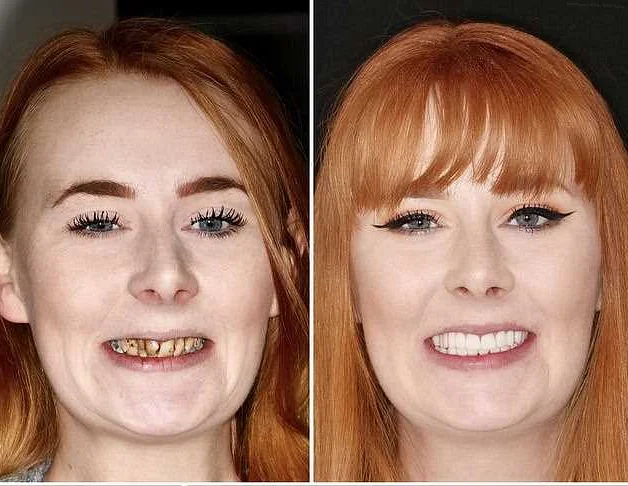Can false teeth hurt, said dentist Wolberg
Содержимое
Dentist Wolberg talks about the possibility of false teeth causing discomfort and pain, and explores common causes and solutions for this issue.
False teeth, or dentures, are a common solution for people who have lost their natural teeth. While they can greatly improve a person’s ability to chew and speak, some individuals may experience discomfort or pain when wearing them. To understand the potential causes of this pain and how to alleviate it, we turned to renowned dentist, Dr. Wolberg.
In Dr. Wolberg’s experience, the most common reason for pain caused by false teeth is ill-fitting dentures. When dentures do not fit properly, they can put pressure on certain areas of the gums, leading to sore spots and discomfort. This can make it difficult for individuals to enjoy their meals or even wear their dentures for extended periods of time.
Another factor that can contribute to pain from false teeth is gum irritation or inflammation. When dentures are not properly cleaned or if they are worn for long periods without a break, bacteria can accumulate on the gums, causing inflammation and soreness. Dr. Wolberg emphasizes the importance of maintaining good oral hygiene and giving the gums a chance to rest by removing the dentures at night.
Furthermore, Dr. Wolberg suggests that pain from false teeth can also be a result of underlying dental issues. If a person’s jawbone has deteriorated or if there are abnormalities in the oral cavity, it can affect the way dentures fit and cause discomfort. In such cases, Dr. Wolberg recommends scheduling an appointment with a dentist to assess the situation and possibly make adjustments to the dentures.
In conclusion, while false teeth can greatly improve the quality of life for individuals who have lost their natural teeth, they can sometimes cause pain and discomfort. Dr. Wolberg advises patients to ensure proper fitting of their dentures, practice good oral hygiene, and seek professional assistance when experiencing persistent pain. By addressing these issues, individuals can minimize pain and enjoy the benefits that false teeth offer.
Common misconceptions about false teeth
False teeth, also known as dentures, are a common solution for individuals who have lost their natural teeth. However, there are several misconceptions surrounding false teeth that can lead to confusion and anxiety for those considering this option. Dentist Wolberg debunks some of the most common false beliefs below:
1. False teeth are uncomfortable and painful: One of the biggest misconceptions about false teeth is that they are uncomfortable and cause pain. While it may take some time for individuals to adjust to wearing dentures, they should not cause pain when properly fitted by a dentist. Any discomfort experienced is usually temporary and can be alleviated with adjustments.
2. Dentures look unnatural: Another misconception is that dentures look fake and unnatural. With advancements in dental technology, dentures can now be customized to closely resemble natural teeth, including color, shape, and size. Skilled dentists strive to create dentures that are virtually indistinguishable from natural teeth.
3. False teeth require extensive maintenance: Some people believe that false teeth require extensive maintenance and that they are difficult to clean. While false teeth do require regular care, the maintenance routine is relatively simple and easy to follow. Dentists provide instructions on how to properly clean and care for dentures, which typically involves daily brushing and soaking in a denture cleaner.
4. Dentures limit food choices: Many believe that dentures restrict the types of food that can be eaten. While it is true that certain hard and sticky foods may pose challenges when wearing dentures, most individuals are able to enjoy a wide variety of foods with minor adjustments. Chewing slowly and cutting food into smaller pieces can help prevent any discomfort or movement of the dentures.
5. Dentures always fall out: There is a common misconception that dentures always fall out while speaking or eating. However, properly fitted dentures should not frequently fall out during normal activities. If dentures are loose or constantly falling out, it may be a sign that they need to be adjusted or replaced by a dentist.
By debunking these common misconceptions, dentist Wolberg hopes to provide individuals with accurate information about false teeth. It is important to consult with a qualified dentist for personalized advice and guidance regarding the use and care of dentures.
Understanding the causes of pain

Pain associated with false teeth can be caused by several factors. It is important to understand these causes in order to effectively manage and alleviate the discomfort. Here are some common reasons for pain in false teeth:
- Poorly fitting dentures: Ill-fitting dentures can exert excessive pressure on the gums and underlying tissues, leading to pain and soreness. This can occur if the dentures are loose, worn out, or have not been adjusted properly. Regular visits to the dentist for adjustments and replacements are important to ensure a proper fit.
- Irregular bite alignment: If the bite alignment of the dentures is abnormal, it can cause pain and discomfort. This can occur if the dentures have not been properly adjusted or if there are issues with the natural teeth that affect the bite. The dentist can make necessary adjustments to correct the bite alignment and improve comfort.
- Gum infections and sores: Poor oral hygiene can lead to gum infections and sores, which can cause pain and discomfort in the presence of false teeth. It is vital to maintain good oral hygiene practices, including regular brushing, flossing, and dental check-ups, to prevent gum infections and alleviate associated pain.
- Acrylic or metal allergies: Some individuals may have allergies or sensitivities to the materials used in false teeth, such as acrylic or metal. This can result in irritation, inflammation, and pain. Consulting with an allergist or dentist can help identify any allergies and determine suitable alternative materials for the dentures.
- Temporomandibular joint (TMJ) disorders: TMJ disorders can also cause pain in the presence of false teeth. These disorders affect the joints and muscles that control jaw movement, leading to pain, clicking or popping sounds, and difficulty in opening and closing the mouth. Seeking professional dental advice can help diagnose and manage TMJ disorders effectively.
It is important to note that any persistent or severe pain associated with false teeth should be evaluated by a dentist. They can determine the exact cause and provide appropriate treatment options to alleviate the pain and improve overall oral health.
How to prevent pain with false teeth

If you are wearing false teeth or are considering getting them, it is important to take steps to prevent any pain or discomfort that may arise. Here are some tips to help you avoid pain with false teeth:
1. Ensure proper fit: One of the main causes of pain with false teeth is an improper fit. Make sure that your dentures are properly fitted by a qualified dentist. They should not be too loose or too tight, as this can lead to sore spots and pain.
2. Maintain good oral hygiene: Keeping your mouth clean and healthy is crucial in preventing pain with false teeth. Brush your gums, tongue, and any remaining natural teeth twice a day, and use an antibacterial mouthwash to kill bacteria and prevent infections.
3. Be mindful of your diet: Certain foods can be more challenging to eat with false teeth, leading to pain or discomfort. Avoid hard or sticky foods that may damage your dentures or cause sore spots. Opt for softer foods that are easier to chew and swallow.
4. Take breaks: Wearing your false teeth for extended periods can cause pain and discomfort. Give your gums and mouth a break by removing your dentures for a few hours each day. This will help prevent pressure sores and allow your mouth to rest.
5. Don’t ignore pain: If you experience any pain or discomfort with your false teeth, do not ignore it. Contact your dentist as soon as possible to address the issue. Ignoring pain can lead to further complications and could require adjustments or repairs to your dentures.
6. Regular dental check-ups: Schedule regular check-ups with your dentist to ensure that your false teeth are fitting properly and to address any potential issues early on. Your dentist can make any necessary adjustments and provide guidance on how to prevent pain and maximize the comfort of your dentures.
By following these tips, you can minimize the risk of pain and discomfort with false teeth, allowing you to enjoy a functional and comfortable smile.
The importance of proper fit

One of the key factors in preventing pain and discomfort when wearing false teeth is ensuring a proper fit. When dentures are not fitted correctly, they can cause a variety of issues.
A proper fit is crucial because it ensures that the dentures are securely held in place, preventing any movement or rubbing against the gums. Ill-fitting dentures can cause sore spots and ulcers, leading to pain and discomfort.
Moreover, when dentures are not properly aligned, they can put pressure on certain areas of the mouth, resulting in pain and even the development of sores. A good fit, on the other hand, distributes the pressure evenly, alleviating any potential pain.
It is important to consult with a qualified dentist who specializes in denture fittings to ensure that the false teeth are properly designed and adjusted to fit the unique shape and size of the individual’s mouth. Regular check-ups and adjustments may be necessary to maintain optimal comfort and prevent any potential issues.
In conclusion, a well-fitted set of false teeth can greatly enhance the overall comfort and quality of life for individuals who require dentures. Proper fit plays a crucial role in preventing pain and discomfort associated with wearing false teeth, making regular dental check-ups and adjustments essential.